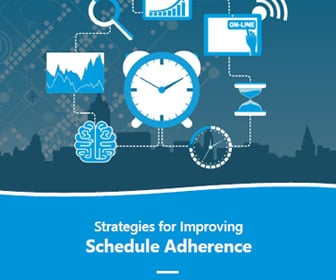Call Center Management Featured Article
Ways to Help Prevent Call Center Burnout and Emotional Exhaustion
Working at a Call Center is not an easy job, as one may think – the job requirements are quite hefty for just a singular person. The general expectation is that the representative will be cheerful, put positives over negatives, appearing both happy and eager to serve the client/customer, have a nice conversational banter as well as express empathy. It is a job that almost always will force one to be cheerful in order to meet and exceed the expectations set forth for them. Metrics are a large part of how Customer Service Representatives are rewarded with customer satisfaction being on forefront. Add to it the volume of calls a CSR (News - Alert) takes, if they meet sales quota, and having in-depth product knowledge of whatever they are discussing.
According to the U.S. Contact Center Decision Makers’ Guide via ContactBabel.com in 2016, there was a 29 percent annual CSR turnover rate, while the average lifespan of a U.S. call center worker is around three years. The Mayo Clinic did a study in 2011 on Burnout/Emotional Exhaustion and defined it as a “chronic state of physical and emotional depletion that results from job demands and stress.” This is also known as “compassion fatigue,” as CSRs experience approximately ten hostile encounters every day – as many as per week. This leads to customer retaliation as the number one way to vent frustration.
What Can Be Done?
First off, the concept of more supervisors is key, as the average ratio is 20 employees per supervisor. With more one-on-one interaction, voices can be heard and problems can be addressed much more quickly. “People burst into tears here all the time. I’m cursed at, called stupid, slow, moron, retard and idiot so many times a day that I cry myself to sleep most nights,” one CSR noted. Ensuring the person being hired is stable is also a key factor to successful job completion and minimal burnout. The hiring process needs to be more intense, as not just anyone can be a CSR, even if they believe it is the “right fit.” CSRs are also encouraged to take more time with customers so that they do not feel rushed, as well as to avoid repeat, angry calls.
With these few tactics, there is a chance the turnover will be much better; CSRs will last longer at the jobs and; most importantly, emotional/burnout exhaustion can become a thing of the past.
Edited by Erik Linask






